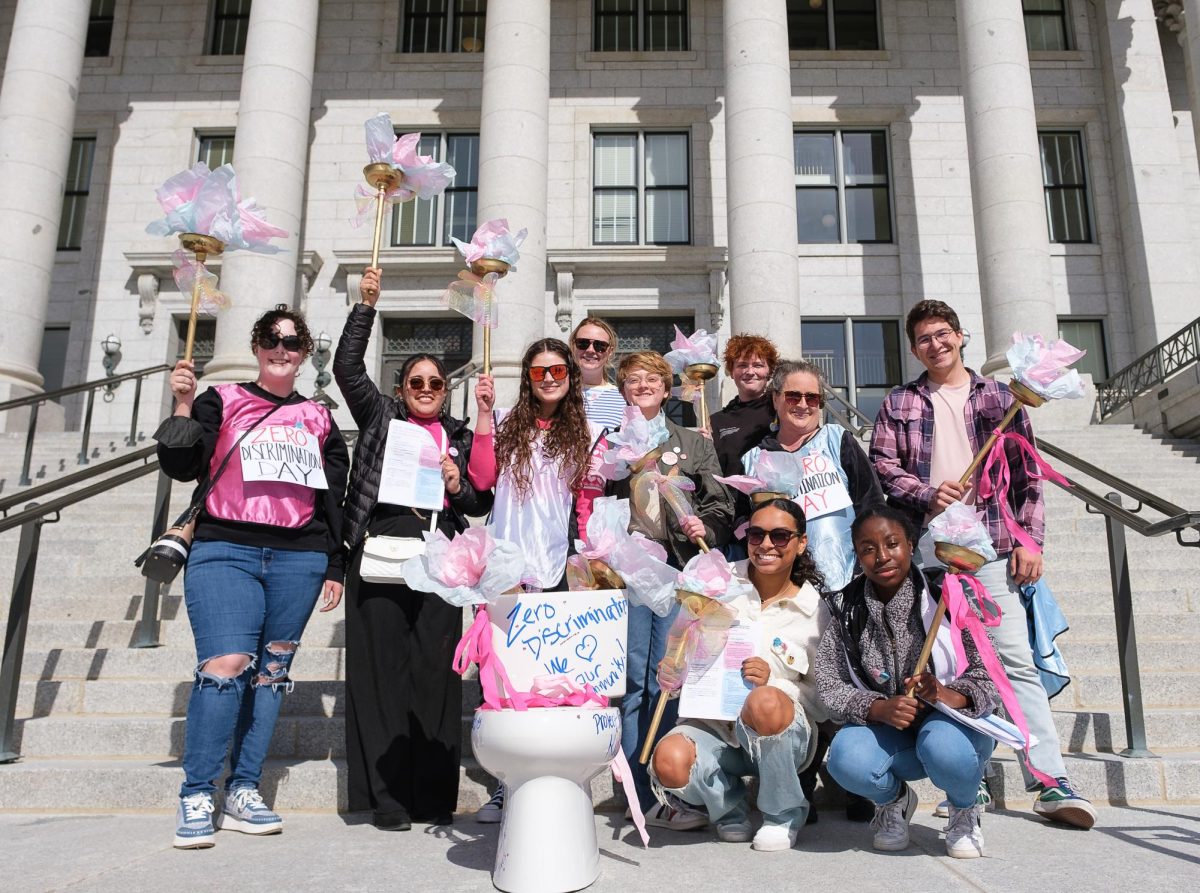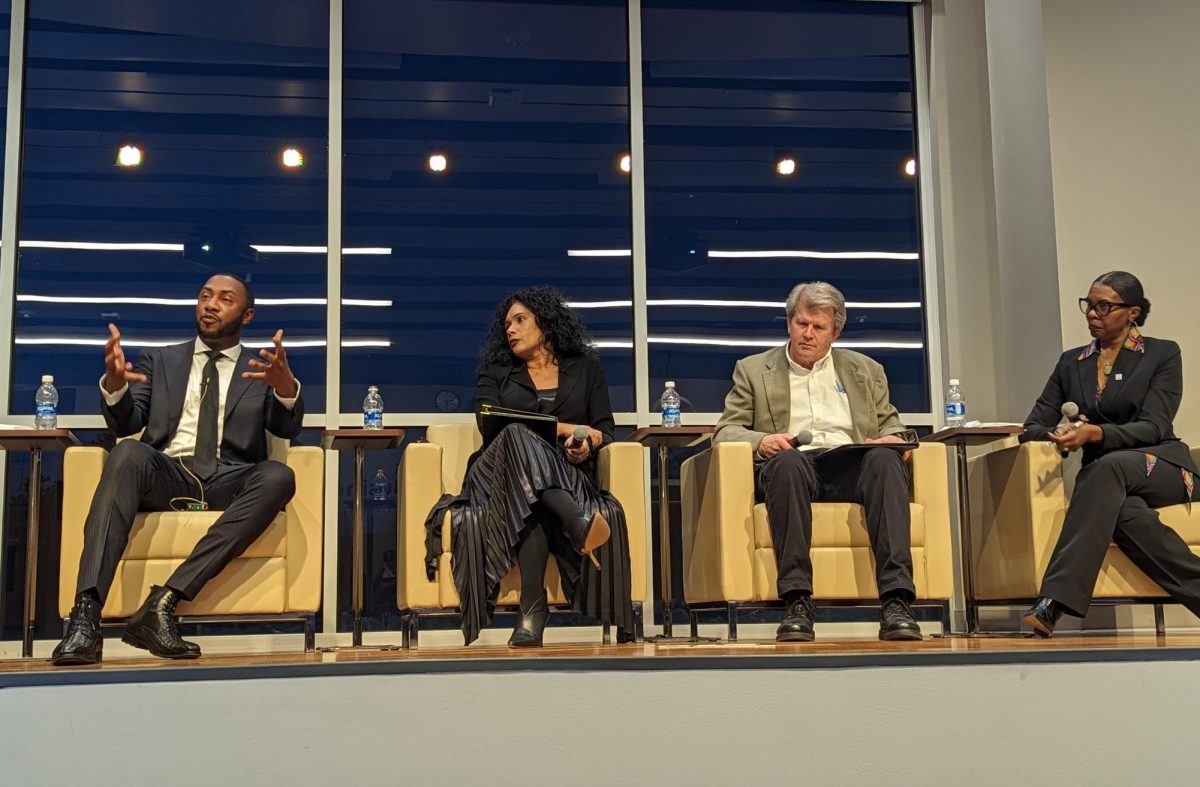[vc_row][vc_column][vc_column_text]Despite national and local efforts to create an environment that combats sexual assault, including the “It’s On Us” campaign, sexual violence is still common on college campuses.
TOP STORY: FOUR U PROFESSORS LOOK TO MAKE HISTORY WITH THEIR TENURE
Sexual violence, which includes forced intercourse, attempted rape, child molestation, incest and fondling, affects 19 percent of women and six percent of men during their college years, according to a National Institute of Justice report. A victim of sexual violence faces emotional and physical trauma and is often left without resources or counseling. The U is hoping to change that.
One of the first places a victim can turn to on campus is the Center for Student Wellness. Katie Stiel, program manager for the center, said the office answers questions about reporting, counseling and future protection depending on the individual student’s needs. And everyone in the center is a confidential communicator, meaning conversations will not be shared.
Jodi Petersen, the center’s campus victim advocate, meets with students who have experienced violence and helps them navigate the university after an assault.
“My goal in counseling a victim through this process is to provide them with all of the facts, and then empower them to make them to make an educated decision about how they want to proceed,” Petersen said.
This includes helping students file a complaint with the Dean of Students Office and the Office for Equal Opportunity, withdraw from classes retroactively, apply for a tuition reimbursement, and file criminal charges.
“When it comes to making an official report, it is an intimidating process,” Petersen said. “Most people’s only reference for this is what they see on TV and in movies, which is incredibly inaccurate.”
Stiel said two of the biggest challenges are that victims are unaware of the services the U offers and that they are afraid of reporting in the first place.
The Center for Student Wellness is also a community partner with the Rape Recovery Center, a nonprofit that provides counseling and support to women, men and gender-nonconforming people 14 years of age and older. They are the state’s only organization that focuses exclusively on sexual assault recovery. The center offers a 24-hour crisis telephone line that operates every day and is run by volunteers who have completed 40 hours of victim advocacy training.
This center also offers additional therapy and a 24-hour hospital response program that is dispatched to 16 emergency rooms in Salt Lake County. These responders work with forensic nurses and do everything from aiding a victim with his/her paperwork to helping the victim through a medical exam that can last up to eight hours.
Holly Mullen, director of the Rape Recovery Center, recommends that victims get help immediately after an assault and go to their nearest emergency room within 24 hours of an attack without showering beforehand so medical professionals can collect DNA samples.
She said even if victims do not want to file a report or go through the medical exam to complete a rape kit, a medical procedure that gathers evidence for a sexual assault case, it’s important for victims to get tested for STDs or pregnancy, as well as receive treatment for physical injuries. A sexual assault nurse examiner can also give antibiotics and supply a morning-after contraceptive, if the person desires.
Mullen said rape recovery also has to address the broad damage that can occur after a sexual assault, which includes physical pain, insomnia, depression, headaches, post-traumatic stress disorder, anxiety and feelings of helplessness.
“Rape is the ultimate robbery of someone’s deepest held independence and control,” Mullen said. “And when that is taken, that is deeply traumatizing.”
Like the Center for Student Wellness, the Rape Recovery Center does not pressure clients to file a report.
“One of the things we work on very hard is to assist the victim in gaining empowerment back because this crime really does play a number on your head,” Mullen said. “One of the big steps in that is to be really clear reporting the crime is up to them.”
Mullen said rape recovery starts from the moment after an act of sexual violence for as long as the person needs, which usually lasts a year but can last longer.
“There’s no judgment around that at all,” she said. “It’s a healing process.”
Mullen said people who experience sexual assault never completely get over it, but they can work to overcome the psychological damages of rape.
“We’re always a product of what’s happened to us … but [those experiences] never have to take over our lives,” she said.
Petersen said in addition to professional victim advocates, family and friends play an integral role in a victim’s recovery. These people’s reactions can help in the recovery process.
“I can’t emphasize enough how important it is to believe a person when they disclose to you that they have been raped,” Petersen said. “I try to set a tone of ‘I will always believe you, I will support you and we will get through this together.’ ”
Mullen cautions that helping victims through rape recovery can be traumatizing to therapists, advocates and friends of victims as well. To avoid secondary trauma, which involves many of the same symptoms primary victims experience, she encourages people to do activities completely unrelated to sexual assault advocacy and to remember their own psychological needs.
An obstacle for people believing rape victims is the common myth that most rape reports are false. The National Center for the Prosecution of Violence Against Women estimates that false reports occur at a rate of just two percent, which is similar to the rate of false accusations for other violent crimes.
The Rape, Abuse and Incest National Network reports that 68 percent of rapes go unreported and 98 percent of rapists will never see jail time, though there has been an increase in reporting.
“Just because now there are more people coming forward doesn’t mean that there’s more sexual violence on campus,” Stiel said. “It means more people are coming forward and getting the resources that they need.”
Another way individual students can help victims is to be active in dismantling rape culture. This culture occurs when rape and sexual violence is accepted because of social attitudes about gender and sexuality. Changing this culture requires rethinking stereotypes about victims and educating people about what constitutes sexual assault and rape.
Vincent Fu, a sophomore in biology and music, said combatting these stereotypes starts with education. Fu is the vice president of internal programming and philanthropy for Beta Theta Phi, a U fraternity that partners with the Rape Recover Center.
“The goal of [this] is to start a conversation about ending sexual assault and addressing the problem as a group of millennial-aged college men,” Fu said.
One stereotype these on-campus advocates are working on is that a victim asks for rape.
“Many survivors of rape and sexual assault do not report their rape because of the victim blaming that runs rampant in society,” Fu said. “Our hope is to shed the light back onto the perpetrators of rape so that victims are not afraid to report the crime.”
Mullen said fighting rape culture has to start early with teaching children, especially young boys, about consent and boundaries. While places like the Rape Recovery Center are seeing more male victims, most of their clients are still females. She said the thing to keep in mind is that no one ever asks for rape.
“The responsibility for rape is on the perpetrator always,” she said. “People can say whatever they want about social society or modesty, but the bottom line is that the victim never asks for it.”
This is the source for recent Utah legislation House Bill 74, sponsored by Rep. Angela Romero (D-Salt Lake City). The bill hopes to update state statutes Romero argues are unclear about what qualifies as consent between sexual partners. It passed unanimously in the Utah House on Tuesday and will move on to the senate next.
Mullen, Stiel and Petersen said due to a rise in advocacy programs and national initiatives, such as the “It’s On Us” campaign started by President Barack Obama last year, which the U joined in Fall 2014, they feel hopeful that a cultural shift is changing how society perceives sexual violence.
“We are also creating an environment where the promotion of rape culture won’t be tolerated,” Petersen said.
@Ehmannky[/vc_column_text][/vc_column][/vc_row]





















